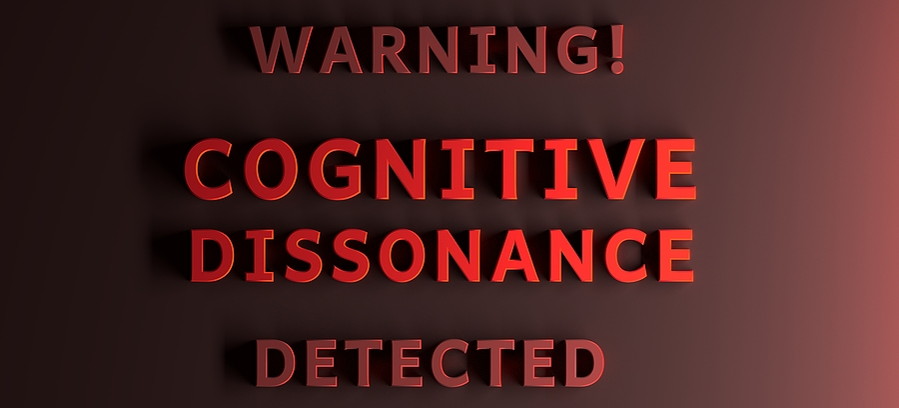 In recent years, discussions surrounding the effectiveness of gambling warnings have gained prominence in both academic and public spheres. Much like warnings on alcohol and tobacco products, those related to gambling aim to inform and caution individuals about potential risks.
In recent years, discussions surrounding the effectiveness of gambling warnings have gained prominence in both academic and public spheres. Much like warnings on alcohol and tobacco products, those related to gambling aim to inform and caution individuals about potential risks.
However, a critical examination of the psychology behind these warnings reveals a complex interplay of factors that challenge their efficacy. Whilst gambling companies would doubtless suggest that they actively want people to gamble safely, it doesn’t really matter to them either way.
There is little doubt that betting companies would like people to gamble in a safe and sensible manner, if for no other reason than that reduces the likelihood that they will face any sort of regulatory challenges for allowing people to bet beyond their means.
Ultimately, though, these companies are designed to make money from your losses, so the amount that they care will always be limited. As a result, they’re happy to put up gambling warnings because they know that they will simply remind most people to login and check their accounts, perhaps placing more bets whilst they’re there, such is the psychology of such warnings.
The Paradox of Gambling Warnings

Gambling, much like alcohol and tobacco consumption, often involves behaviours that individuals recognise as risky or potentially harmful but do it anyway. The cognitive dissonance phenomenon arises when there is a conflict between an individual’s awareness of the risks and their desire to engage in the behaviour regardless of those risks.
This conflict can lead to rationalisations, minimisation of risks or even the dismissal of warning messages. For example, a frequent gambler may acknowledge the potential financial risks they’re facing but might justify their behaviour by emphasising the entertainment value or their chance of winning.
Meanwhile, the overexposure to warnings can lead to desensitisation, which is a process whereby the impact of the message diminishes over time. This desensitisation occurs when individuals are repeatedly exposed to similar warnings without experiencing the anticipated negative consequences.
In the case of gambling, habitual exposure to warnings may lead to reduced attention and response. Someone who regularly visits a casino may become immune to the impact of warning signs due to their frequent exposure, which is where the paradox comes in. Companies need to warn people, but in doing so can make them immune.
One of the key psychological factors that influences gambling behaviour is the belief in one’s own skill or control over the outcome. This perception can lead individuals to underestimate the risks associated with gambling activities. Consequently, they may discount or ignore warnings that highlight the element of chance.
 A poker player may believe that their knowledge of the game and ability to read opponents gives them an edge, minimising the perceived risk of losing and allowing losses to be ignored as simply a misreading of the situation, rather than poor play in general.
A poker player may believe that their knowledge of the game and ability to read opponents gives them an edge, minimising the perceived risk of losing and allowing losses to be ignored as simply a misreading of the situation, rather than poor play in general.
Related to this illusion of control is the optimism bias, whereby individuals tend to overestimate their chances of winning. This bias can lead people to downplay the potential negative outcomes, rendering traditional warnings less effective.
A person purchasing a lottery ticket may focus on the possibility of winning the jackpot, whilst neglecting the astronomically low odds. Understanding these cognitive processes is crucial in designing effective gambling warnings. By addressing these biases directly, warnings can potentially break through the mental barriers individuals erect to justify their gambling behaviour.
The Ineffectiveness of Conventional Responsible Gambling Advertisements
 When it comes to responsible gambling, a paradoxical trend emerges in the form of the apparent inefficacy of conventional warnings and advertisements. Much like their counterparts in alcohol and tobacco, responsible gambling ads strive to impart caution and awareness. However, their impact often falls short, giving rise to a perplexing conundrum.
When it comes to responsible gambling, a paradoxical trend emerges in the form of the apparent inefficacy of conventional warnings and advertisements. Much like their counterparts in alcohol and tobacco, responsible gambling ads strive to impart caution and awareness. However, their impact often falls short, giving rise to a perplexing conundrum.
One prominent pitfall is the phenomenon known as the “Boomerang Effect”. Instead of eliciting the desired cautious response, some individuals actually exhibit counterproductive reactions to these well-intentioned messages.
This paradoxical outcome arises when the intended warning triggers a defensive psychological response, leading individuals to engage in the risky behaviour even more fervently. It’s a perplexing dynamic – the very attempt to steer individuals away from excessive gambling can sometimes push them further towards it.
A case in point is a responsible gambling advert from a betting company. In spite of the fact that it involves an earnest plea for responsible gambling, it often prompts individuals to double down on their gambling activities.
Even on a personal level knowing about this effect I have seen responsible gambling adverts on TV for popular brands and I have checked my account on my phone as a result. This was almost subconscious due to the brand recognition. It is one reason why many think that responsible gambling adverts are actually more self serving to the operator and can actually drive more business than otherwise.
The reasons behind this paradox are many. It could be attributed to the intricate interplay of cognitive biases, such as the illusion of control and optimism bias, which skew individuals’ perceptions of their own agency in gambling outcomes. On top of that, conventional responsible gambling advertisements often grapple with cognitive biases in message processing.
 Confirmation bias and selective attention can lead individuals to filter out or reinterpret cautionary messages in a manner that aligns with their existing beliefs or behaviours, resulting in us finding ways to justify out behaviour.
Confirmation bias and selective attention can lead individuals to filter out or reinterpret cautionary messages in a manner that aligns with their existing beliefs or behaviours, resulting in us finding ways to justify out behaviour.
Similarly, the availability heuristic can distort risk perception, causing individuals to weigh the potential rewards of gambling more heavily than the associated risks. These challenges underscore the need for a reevaluation of the conventional approach to responsible gambling messaging. It beckons for a shift towards more dynamic, targeted strategies that account for the intricacies of human cognition and behaviour.
The paradoxical nature of these conventional warnings serves as a reminder that a one-size-fits-all approach is seldom effective in a landscape as diverse and nuanced as human decision-making.
In the pursuit of more impactful responsible gambling interventions, it becomes imperative to dissect and understand the cognitive mechanisms that underlie individuals’ responses to warnings. By doing so, we can begin to unravel the layers of complexity surrounding this paradox and forge new paths towards more effective, personalised strategies that foster responsible gambling practices.
That isn’t to say that gambling companies should be expected to create responsible gambling adverts for each individual customer, but that painting all punters with the same brush doesn’t help most of them.
The Role of Emotional Appeals & Personalisation

When it comes to responsible gambling interventions, the power of emotional appeals and personalised messaging emerges as a critical avenue for effecting genuine change. These elements serve as potent tools in dismantling the cognitive barriers that individuals often erect to rationalise their gambling behaviour.
Emotional engagement emerges as a catalyst for behaviour change, transcending the confines of mere rationality. Fear-based appeals, while often criticised for their potential to induce distress, possess a unique ability to elicit visceral, immediate responses.
They tap into our primal instincts for self-preservation, vividly painting the potential consequences of unchecked gambling behaviour. By showcasing the stark contrast between the allure of a potential win and the sobering reality of potential losses, fear-based appeals have the potential to jolt individuals out of any complacency.
On the flip side, empathy-based appeals offer a more compassionate approach. They appeal to the intrinsic human need for connection and understanding. By narrating the stories of individuals who have grappled with the adverse effects of excessive gambling, these appeals create a sense of shared experience.
This shared experience can be a powerful force, fostering empathy and prompting individuals to reflect on their own behaviours. Consider, for instance, the story of an individual who, through a personalised message, recounts their journey from the highs of a big win to the lows of crippling debt and emotional turmoil.
This narrative transcends statistics and general warnings, resonating on a deeply personal level. It serves as a reminder that gambling’s impact extends far beyond the financial realm, seeping into emotional well-being and the relationships of real people.
Tailoring warnings to individual characteristics further amplifies their impact. Personality traits play a pivotal role in how individuals perceive and respond to warnings. For example, an individual with a high sensation-seeking disposition may be more inclined to take risks, necessitating a different approach than someone who exhibits a more risk-averse nature.
Understanding these nuanced differences allows for the customisation of messages, ensuring they resonate with the recipient on a profound level. Demographic considerations also play a crucial role in personalisation.
Different age groups, genders, and socioeconomic backgrounds may respond differently to various messaging strategies. Younger individuals may be more swayed by messages that emphasise the long-term consequences of gambling, whilst older punters may be more receptive to messages that highlight the immediate risks.
In leveraging emotional appeals and personalisation, we embark on a journey towards more impactful responsible gambling interventions. Individualisation doesn’t mean one advert for every person, but rather different adverts for different personality types.
There is little doubt that gambling companies have such information about the people that use their services. The top betting sites will know exactly what sort of personality their main bettors have, tailoring adverts and offers to them individually.
This information could be used in order to offer a responsible gambling advert that will have desired effect on the bettors that have the types of personality that it is aimed at, rather than just posting a generic gambling warning advert that is easily dismissed and often just becomes part of the general noise around betting as a whole.
Leveraging Behavioural Insights for Effective Gambling Warnings
 In the search for more impactful responsible gambling interventions, a promising avenue lies in the strategic application of the behavioural insights that we’ve covered elsewhere on this site. Understanding the intricacies of human decision-making processes allows for the development of warnings that resonate on a deeper level, prompting meaningful change.
In the search for more impactful responsible gambling interventions, a promising avenue lies in the strategic application of the behavioural insights that we’ve covered elsewhere on this site. Understanding the intricacies of human decision-making processes allows for the development of warnings that resonate on a deeper level, prompting meaningful change.
One powerful concept in this domain is the application of nudges and choice architecture. By subtly altering the way options are presented, individuals can be gently steered towards more responsible choices without compromising their autonomy.
Default options, for instance, can play a pivotal role. By setting responsible gambling limits as the default in betting platforms, individuals are prompted to actively opt-out if they wish to deviate from these limits.
This approach capitalises on the human tendency to stick with defaults, effectively encouraging responsible behaviour as the default and encouraging people to actively think about whether they wish to move away from that approach to their betting. It is less likely that most people will actively choose to allow themselves to lose more money when prompted.
Framing effects also wield significant influence in risk communication. The manner in which information is presented can drastically impact individuals’ perceptions of risk. As an example, presenting the potential losses associated with gambling as losses relative to a specific baseline, such as your monthly income, can be more impactful than presenting them in absolute terms.
This reframing allows individuals to grasp the gravity of their actions in a context that’s personally relevant to them, therefore making it much more likely that they will think about what they’re doing.
Not only that, the gamification of responsible gambling messages presents an interesting avenue to be explored. By incorporating elements of interactivity and feedback, warnings can transcend the realm of passive information dissemination. Interactive tools that allow individuals to simulate the potential outcomes of their gambling behaviour can provide a visceral, experiential understanding of the risks involved.
On top of that, real-time feedback mechanisms can offer immediate reinforcement of responsible choices, creating a positive feedback loop that encourages continued responsible behaviour.
Behavioural conditioning techniques also hold promise in this area. By associating responsible gambling behaviours with positive reinforcement, individuals can be subtly guided towards more prudent choices.
For example, providing rewards or incentives for adhering to self-imposed gambling limits can reinforce the value of responsible behaviour. Consider a scenario where a gambling platform incorporates a feature that periodically prompts users to review and adjust their gambling limits. Upon doing so, users receive tokens or bonuses as a token of appreciation for their commitment to responsible gambling.
This not only reinforces the importance of setting limits but also establishes a positive feedback loop, associating responsible behaviour with tangible rewards. In adopting these behavioural insights, we move beyond traditional warning approaches, recognising that responsible gambling is fundamentally a behavioural issue.
By strategically leveraging nudges, framing effects, gamification and conditioning techniques, we tap into the underlying mechanisms that drive decision-making. This approach transcends the confines of static warnings, transforming responsible gambling interventions into dynamic, interactive experiences that facilitate informed, mindful choices.
